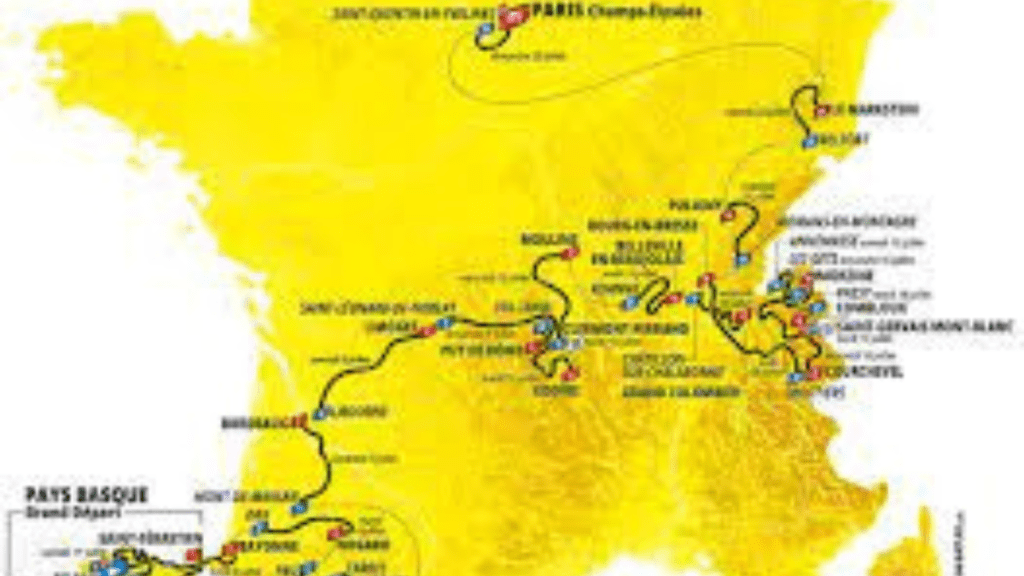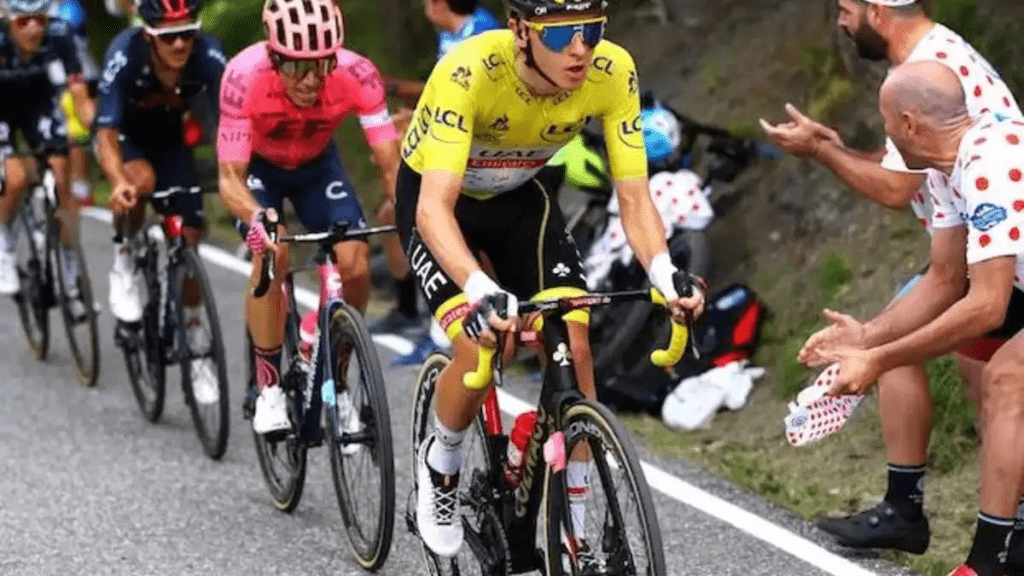Introduction to Tour de France 2023
Tour de France 2023 : The Tour de France is arguably the most prestigious and grueling cycling race in the world. Each year, professional cyclists from around the globe gather to compete in this epic three-week event. In 2023, the Tour de France promises to be even more thrilling, with a challenging route and fierce competition among top contenders.
The Tour de France has a rich history that dates back to its inception in 1903. The race was initially organized to boost the sales of a French newspaper and has since evolved into a symbol of human endurance and sporting excellence. Over the years, the race has witnessed various triumphs, controversies, and unforgettable moments that have shaped its legacy.
Tour de France 2023 Route and Stages
The route of the Tour de France is meticulously planned each year to test the riders’ abilities to the fullest. The 2023 edition will feature several challenging stages, including mountainous terrains, flat sprints, and individual time trials. The Grand Depart will set the tone for the entire race, and riders will face demanding mountain stages that will determine the true contenders for the overall title.
Top Contenders and Teams for Tour de France 2023
As always, the Tour de France attracts the best cyclists in the world, and the 2023 edition will be no exception. Past champions and rising stars from various teams will battle for the coveted Yellow Jersey. The strength of the teams and the riders’ form will play a pivotal role in determining the winner.
Tour de France 2023 Jerseys and Awards

Throughout the race, riders will compete for prestigious jerseys and awards. The Yellow Jersey, worn by the overall leader, is the most coveted. Other jerseys, like the Green Jersey for the best sprinter and the Polka Dot Jersey for the King of the Mountains, also hold great significance.
Iconic Moments in Tour de France History
The Tour de France has provided cycling enthusiasts with countless iconic moments that have left a lasting impact. From legendary stages that pushed riders to their limits to dramatic finishes that had spectators on the edge of their seats, these moments have become a part of the race’s rich tapestry.
Preparing for Tour de France 2023
Competing in the Tour de France requires extensive preparation and dedication. Cyclists must focus on rigorous training regimens, ensuring their fitness levels are at their peak. Additionally, maintaining a proper nutrition plan and mental preparation are crucial aspects of getting ready for the demanding race.
The Impact of Tour de France on Local Communities
The Tour de France is not just a sporting event; it also brings significant benefits to the communities it passes through. The race stimulates local economies by attracting tourists and generating revenue for businesses. However, it’s essential to balance these economic benefits with environmental considerations to minimize the race’s ecological footprint.
The Tour de France and Doping Controversies

Doping controversies have marred the history of the Tour de France, casting a shadow over the race. However, strict anti-doping measures have been implemented in recent years to ensure fair competition and protect the integrity of the sport. Past scandals have prompted a renewed focus on maintaining a clean and transparent race.
Spectating Tour de France 2023
Watching the Tour de France in person is an exhilarating experience for cycling enthusiasts. Knowing the best viewing locations along the route, understanding the fan experience, and having travel tips can enhance the overall enjoyment of witnessing the race firsthand.
The future of Tour de France
The Tour de France continues to evolve with advances in technology and changing perspectives on inclusivity. Innovations such as data analytics, aerodynamics, and equipment improvements are reshaping the sport. There is also growing momentum for the inclusion of a women’s race, offering equal opportunities and recognition to female cyclists.
Conclusion
The Tour de France 2023 promises to captivate audiences worldwide with its blend of athleticism, strategy, and sheer determination. As cyclists embark on the challenging route, the race will showcase the pinnacle of human endurance and the thrill of competitive cycling. With its storied history, cultural significance, and global impact, the Tour de France remains a remarkable sporting spectacle that continues to inspire and unite fans around the world.
FAQs
How long is the Tour de France?
The Tour de France covers a distance of approximately 3,500 kilometers (2,200 miles) over a period of three weeks.
Are there any rest days during the Tour de France?
Yes, the Tour de France includes two rest days, usually scheduled after the first and second weeks of racing.
